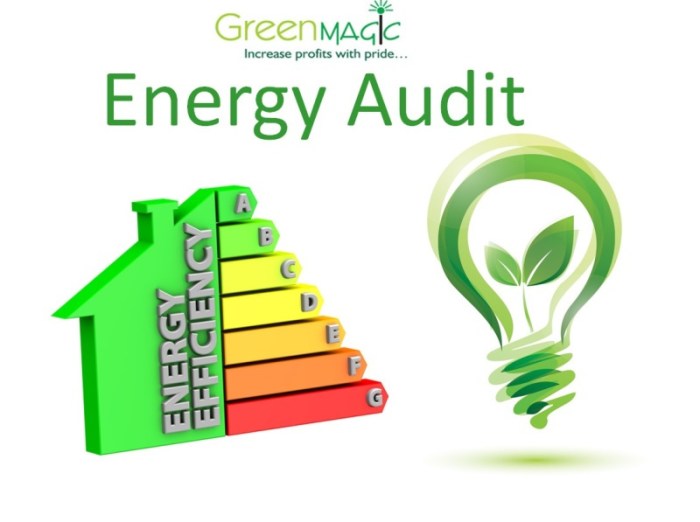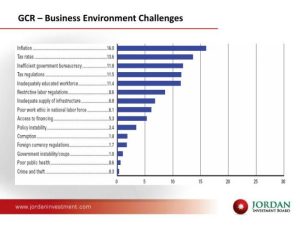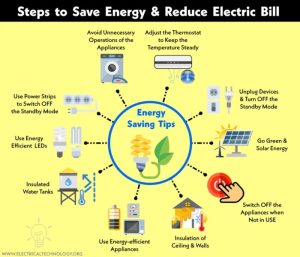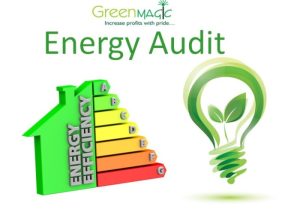
Embark on a journey through the world of energy audits for companies, where savings meet sustainability in a harmonious blend of efficiency.
From uncovering hidden wastage to implementing cutting-edge solutions, this topic delves into the core of optimizing energy consumption.
Energy audits for companies
Energy audits play a crucial role in helping companies identify opportunities to reduce operational costs and improve overall efficiency. By assessing energy consumption patterns, companies can pinpoint areas where energy is being wasted and implement strategies to optimize usage.
Key Areas Assessed During an Energy Audit
- Lighting systems: Evaluating the efficiency of lighting fixtures and recommending upgrades to energy-efficient LED bulbs.
- Heating, ventilation, and air conditioning (HVAC) systems: Analyzing HVAC performance and identifying opportunities for improved insulation and maintenance.
- Equipment and appliances: Assessing the energy consumption of machinery, computers, and other devices to identify energy-saving measures.
- Building envelope: Inspecting windows, doors, and insulation to prevent energy loss through leaks and poor insulation.
Benefits of Implementing Energy Efficiency Measures
- Cost savings: Lowering energy consumption leads to reduced utility bills and operational expenses.
- Environmental impact: Decreasing energy usage helps companies reduce their carbon footprint and contribute to sustainability efforts.
- Improved reputation: Demonstrating a commitment to energy efficiency can enhance a company’s reputation among customers, employees, and stakeholders.
Common Tools and Software Used for Energy Audits
- Energy modeling software: Programs like EnergyPlus and RETScreen allow companies to simulate energy usage and evaluate the impact of different efficiency measures.
- Data loggers: Devices that track energy consumption in real-time, providing valuable data for assessing energy usage patterns.
- Thermal imaging cameras: Used to identify areas of heat loss or poor insulation in buildings, helping companies improve energy efficiency.
Chemicals and Allied Products

Chemicals and allied products play a crucial role in various industries, ranging from pharmaceuticals to agriculture. The production processes involved in this sector often require significant energy consumption, making it essential to focus on energy efficiency practices.
Energy Consumption Patterns
The chemicals and allied products industry is known for its energy-intensive operations due to the need for heating, cooling, and chemical reactions. The production of chemicals, plastics, fertilizers, and other products involves high energy consumption, contributing to the industry’s overall carbon footprint.
Energy Efficiency Practices
Within the chemicals and allied products industry, different segments may vary in their energy efficiency practices. For example, pharmaceutical companies may prioritize clean energy sources and energy-saving technologies in their production processes, while plastic manufacturers may focus on recycling and waste reduction to improve energy efficiency.
Energy-Saving Technologies
Common energy-saving technologies utilized in the production of chemicals and allied products include:
- Heat recovery systems to capture and reuse waste heat
- Energy-efficient lighting and HVAC systems
- Process optimization and automation to reduce energy waste
- Cogeneration systems to produce electricity and heat simultaneously
Role of Energy Audits
Energy audits play a crucial role in improving sustainability practices within the chemicals and allied products industry. By conducting comprehensive energy audits, companies can identify areas of energy waste, implement energy-saving technologies, and optimize their production processes to reduce energy consumption and environmental impact.
Construction and Maintenance
Energy audits play a crucial role in helping construction companies reduce their carbon footprint and improve energy efficiency. By identifying areas of energy waste and recommending energy-saving measures, audits can lead to significant cost savings and environmental benefits.
Energy-Efficient Practices during Maintenance Audits
- Regular HVAC system maintenance to ensure optimal performance and energy efficiency.
- Upgrading lighting fixtures to energy-efficient LED bulbs.
- Implementing smart building automation systems to monitor and optimize energy usage.
- Insulating walls, floors, and roofs to reduce heat loss and improve energy efficiency.
Impact on Building Design and Construction Materials Selection
- Energy audits can influence building design by recommending energy-efficient materials and technologies.
- Optimizing building orientation and layout to maximize natural light and reduce heating and cooling needs.
- Selecting sustainable construction materials with lower embodied energy and environmental impact.
Integrating Renewable Energy Sources based on Audit Recommendations
- Installing solar panels on rooftops or facades to generate clean energy and reduce reliance on traditional power sources.
- Utilizing geothermal heating and cooling systems for more efficient and sustainable building operations.
- Incorporating wind turbines or micro-hydro systems to further diversify renewable energy sources on-site.
Consumer Goods and Services
Consumer goods and services companies face unique challenges when it comes to energy consumption. From manufacturing processes to distribution networks, energy efficiency plays a crucial role in reducing costs and environmental impact.
Case Studies of Successful Energy Audit Implementations
- In the consumer goods sector, a global beverage company conducted an energy audit that identified opportunities for lighting upgrades and HVAC system improvements. By implementing these recommendations, the company was able to reduce energy costs by 15% annually.
- A leading electronics manufacturer invested in energy-efficient equipment following an energy audit, resulting in a 20% decrease in energy consumption and significant cost savings over time.
Importance of Employee Engagement in Sustainability Initiatives
Employee engagement is key to the success of sustainability initiatives post-energy audit in the consumer goods and services industry. Companies can involve employees in energy-saving efforts through training programs, incentive schemes, and regular communication on the importance of sustainability.
Strategies for Communicating Energy Efficiency Improvements to Consumers
- Utilize product packaging to highlight energy-efficient features and certifications, such as Energy Star ratings.
- Launch marketing campaigns that emphasize the company’s commitment to sustainability and energy conservation.
- Engage with consumers through social media and other channels to educate them about the benefits of energy-efficient products and services.
Business Energy
In today’s competitive business landscape, energy management plays a crucial role in ensuring operational efficiency and cost-effectiveness. By effectively managing energy usage, companies can not only reduce their carbon footprint but also improve their bottom line.
Energy Audits for Identifying Wastage
Energy audits are a valuable tool for businesses to identify areas of energy wastage and inefficiency within their operations. By conducting a comprehensive audit, companies can pinpoint sources of excessive energy consumption, such as outdated equipment or inefficient processes. This information allows businesses to make informed decisions on where to invest in upgrades or improvements to optimize energy usage.
Role of Energy Benchmarking
Energy benchmarking involves comparing a company’s energy performance against industry standards or similar businesses to set realistic performance targets. By benchmarking energy usage, companies can gain valuable insights into their energy efficiency and identify areas for improvement. This data-driven approach helps businesses track their progress over time and make informed decisions to enhance their energy performance.
Creating a Culture of Energy Efficiency
To promote energy efficiency within organizations, it is essential to create a culture that values sustainability and resource conservation. Companies can implement energy-saving initiatives, such as employee training programs, energy awareness campaigns, and incentives for reducing energy consumption. By fostering a culture of energy efficiency, businesses can engage employees at all levels and encourage collective efforts to minimize energy wastage and maximize savings.
Business Environment
In the business environment, energy audits play a crucial role in helping companies identify areas for improvement in their energy consumption and efficiency. Let’s explore how the regulatory landscape, financial incentives, corporate social responsibility initiatives, and successful partnerships impact energy audits for businesses.
Regulatory Landscape
The regulatory landscape surrounding energy audits for businesses varies depending on the country or region. Some governments may require companies to conduct regular energy audits to comply with environmental regulations and energy efficiency standards. These audits help businesses reduce their carbon footprint and energy costs while ensuring compliance with legal requirements.
Financial Incentives
Companies implementing energy audit recommendations can benefit from various financial incentives. These incentives may include tax credits, rebates, grants, or low-interest loans to support energy efficiency upgrades. By taking advantage of these incentives, businesses can offset the initial costs of implementing energy-saving measures and see a return on investment in the long run.
Corporate Social Responsibility Initiatives
Energy audits are closely linked to corporate social responsibility initiatives as they demonstrate a company’s commitment to sustainability and environmental stewardship. By conducting energy audits and implementing energy-saving measures, businesses can reduce their environmental impact, conserve resources, and contribute to a more sustainable future. This aligns with the growing consumer demand for eco-friendly products and services.
Successful Partnerships
Successful partnerships between businesses and energy audit service providers can lead to mutually beneficial outcomes. Energy audit service providers offer expertise in identifying energy-saving opportunities and implementing cost-effective solutions, while businesses benefit from reduced energy costs and improved sustainability practices. These partnerships can result in long-term energy savings, enhanced corporate reputation, and a positive impact on the environment.
Wrap-Up

In conclusion, energy audits for companies offer a roadmap to financial savings, environmental stewardship, and a brighter future for businesses of all sizes.
General Inquiries
How can energy audits benefit companies beyond cost reduction?
Energy audits can also enhance operational efficiency, improve environmental impact, and boost overall competitiveness in the market.
Are there specific software tools recommended for conducting energy audits?
Some common software tools include EnergyCAP, Schneider Electric EcoStruxure, and Lucid BuildingOS.
What are the key areas within a company typically assessed during an energy audit?
Areas such as lighting, HVAC systems, insulation, appliances, and overall energy management practices are often evaluated during audits.






